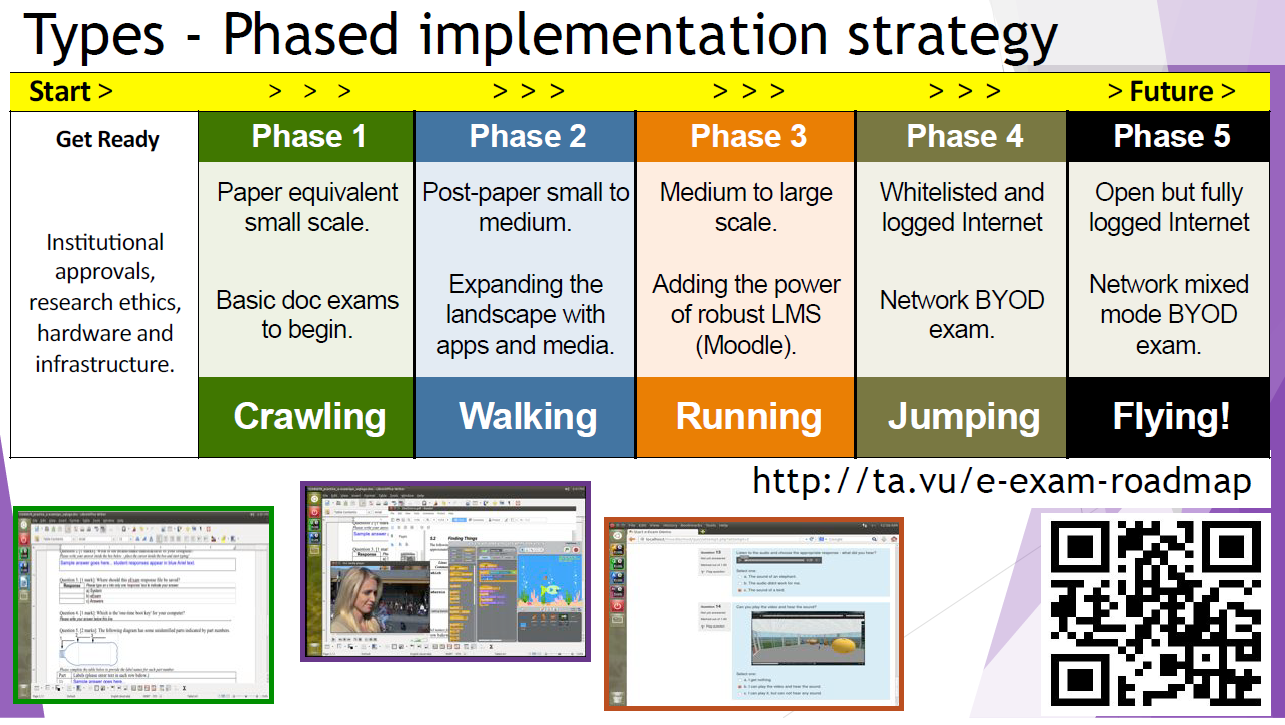ASCILITE Conference 2018 recap

What is happening in the broader world of education? The 35th ASCILITE Conference on ‘Innovation, Practice and Research in the Use of Educational Technologies in Tertiary Education’ was an excellent opportunity to explore current industry trends. The conference streams focussed on topics including:
- New pedagogies and practices that focus on key trends such as personalisation, inter-disciplinary learning and authentic professional practice
- Improving digital literacy for staff and students from diverse backgrounds
- Approaches that foster deep learning to prepare graduates for an increasingly global and mobile industries
- Creating a culture of innovative practice that build staff capability to be resilient in rapid change
- Measuring learning and advancing impact through digital tools and learning analytics.
Conference takeaways
Here are three sessions from the conference that demonstrate the breadth of discussions.
Innovation in Service of Social Justice: Bringing education to underserved populations
Presenter: Professor Paul Le Blanc, Southern New Hampshire University
Competency-based education is a point of innovation at the moment, as everything (relatively) old is new again. While the vocational education sector will be wondering why it’s taken so long to catch up, in the US there have previously been no degrees operating on this basis. Southern New Hampshire University’s College for America runs industry-leading competency-based programs built for those challenged with busy lives, priced and targeted towards those without previous higher education experience.
These programs allow students to work on real-world projects and receive a fully accredited associate degree from the Southern New Hampshire University upon completion (a full degree program is on the cards for the future as well). Courses in Management, Business, Communications and Healthcare, for example, are available 24/7 online – there are no required classes or exams, so students are able to create a schedule that works for them. Students are supported with their own learning coach who stays with them for the duration of their studies. If you’d like to know more about competency-based education, we have a wealth of knowledge here at Navitas – and MIT is running a course on EdX called Competency-Based Education: The Why, What, and How.
Towards authentic e-exams at scale: Robust networked Moodle
Presenters: Mathew Hillier, Scott Grant and Martin Coleman, Monash University
One new practice in education which will, and is already, changing education is e-exams. For example, the Pearson Test of English (aka PTE) involves students speaking to a computer and has greater consistency of test-delivery than human-delivered speaking tests. However, it is criticised for, among other things, lacking authenticity. Yet it is scalable (the technology, once built, is cheap to replicate) and its integrity, while debatable, is easily measured. The project presented set out to improve the authenticity of e-exams without sacrificing scalability and consistency. It’s a work in progress (as assessment should always be) and it’s worth checking out the rest of their work.
They also presented the beginnings of an e-exam maturity model. You can see that at phases 4 to 5 a re-design of the assessments themselves is necessary (if not earlier).
Simply replacing our old pen and paper exams with a keyboard and screen will not realise the transformative power of this change.
Getting ready for the New Work Order
Presenter: Jan Owen, AM CEO at the Foundation for Young Australians
Jan Owen presented some big-picture research on the future of education and the workforce. In sum, Australia is facing an ageing population and not enough is being done to futureproof the next generation in the labour market with jobs being radically affected by automation. The ways in which the next generation are educated will have a huge effect on the future of the globe (a truism always, but more so now) and we have strong evidence that those ways need to change in order to preserve work opportunities for Australians. Here are some highlights of her keynote:
Youth and change:
- The centre of world economics is shifting and Australia enjoys a significant advantage given its geographic position with 750 million young people (12-26 year olds) living within a 3 hour plane ride to Australia
- Young people need skills and education for the future social and economic landscape
- Today’s young are more educated than ever yet youth unemployment/underemployment is a long-term, significant and so far intractable problem.
Trends in employment:
- Driven by further automation, globalisation and collaboration, change will be a constant in the future workplace and will require workers to be flexible
- A new ‘agreement’ between industry and the education sector collaboration is needed to co-design curriculum and embed more on-the-job training
- There has been an increase in temporary and part-time, self-directed work across industries.
Trends in education:
- Increased focus on specific skills attained and evidenced, and less focus on overall scores achieved within programs
- The long-term trend of work integrated learning within programs is continuing
- The recognition of new pathways to attaining accreditation (see the College for America program above).
You may be familiar with many of these changes. Yet when you put them together it’s a reminder of how important and transformative our work can be – the decisions we all make in the every day can have a profound impact on the future.
Visit the ASCILITE conference website for more details about the event. To continue the conversation, contact Lindsay Rattray, or share your thoughts and ideas from the conference via Yammer, Twitter and/or LinkedIn with the hashtag #ASCILITE2018.

